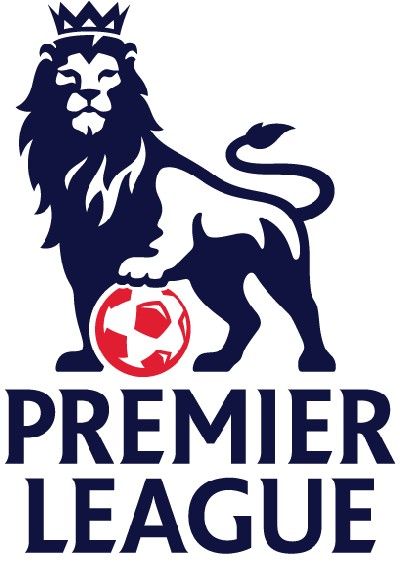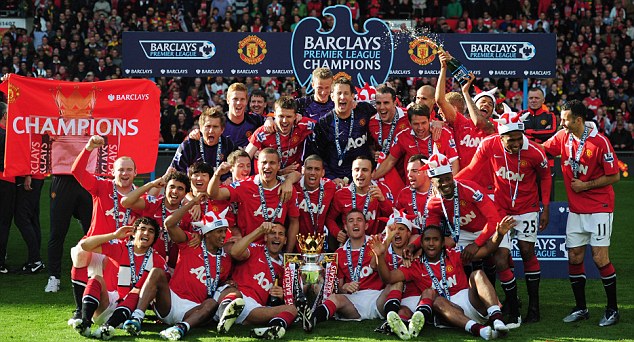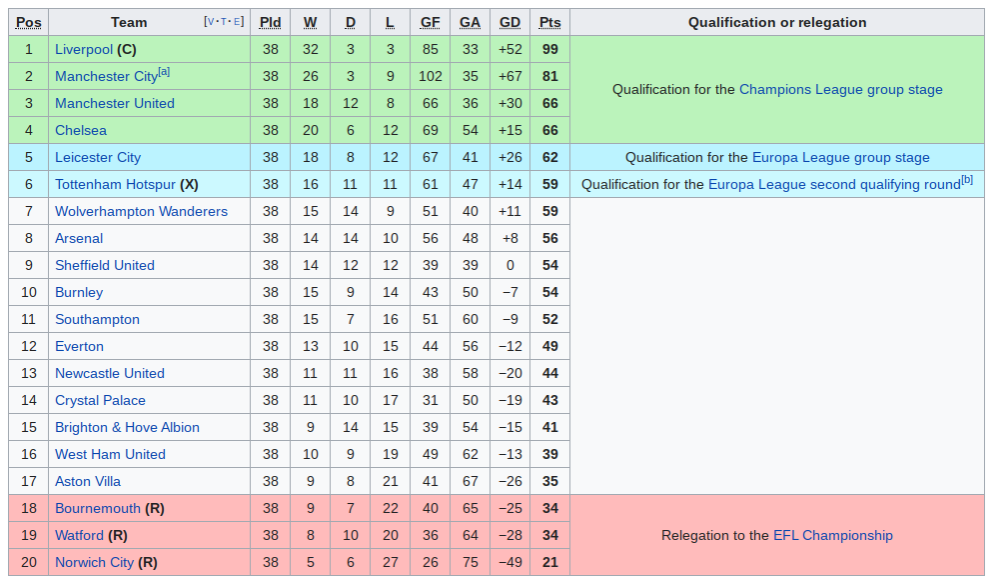England Premier League
When it comes to the process of discussing the top divisions in the world of association football, you can’t really get anywhere without first bringing up the English Premier League. It is often considered by many to be the best league, or at least one of the best leagues, in the entire sport. Whether or not you agree with that statement isn’t important, as long as you appreciate the history behind this absolute juggernaut of the game.
It is no secret that English football was struggling in a big way throughout the course of the 70s and 80s, courtesy of failing stadiums and problems surrounding hooliganism – amongst many other issues. In the early 90s, however, the formation of a brand new division ensured that football in this country would never be the same again.

Competition Format
The Premier League’s first season took place in 1992, and it featured a combination of familiar faces as well as some clubs that are now struggling down in the lower leagues of the game. The standard procedure of the division allowed for three teams to be relegated to the division below every single season, which we now know to be the Championship aka the second tier. Three clubs will, of course, be promoted from the Championship as a result, with two progressing automatically and the third making their way up through a four-team playoff system.
The season typically runs between August and May, with the number of teams in the Premier League (also known as the Premiership by some), being reduced down to 20 in 1995. Everyone plays each other twice in a double round-robin type of system, with one being played at their own stadium and the other being played away from home. That makes for a total of 38 games throughout the course of the campaign.
In the current system, teams are awarded three points for a win, one for a draw and of course, no points for a defeat. Following the total points, they are then ranked based on goal (between scored and conceded), then how many goals they’ve scored. On rare occasions, if deemed important enough, a neutral playoff could occur in order to decide who finishes above whom.
Champions
The history of the division speaks for itself and so does the list of champions throughout the years. It is not exactly a secret that Manchester United are the most successful team in the history of the competition, with Sir Alex Ferguson being one of the primary factors behind that. The Scottish boss was able to guide the Red Devils to some substantial success, as they picked up 13 league titles between 1992 and 2013. While they haven’t won one since nobody has even been able to come close to matching them.


The closest contenders in that regard are Chelsea, who have five title wins with their last coming in 2017. The Blues owe a lot of their success to Jose Mourinho, who was once deemed to be ‘The Special One’. Whilst he has a polarising kind of personality, nobody has been able to deny his success, with Chelsea officially being recognised by many as the second-best team in the division’s illustrious history.
Arsenals, under the former tutelage of Arsene Wenger, are tied with Manchester City on three titles each. City are the reigning champions under the guidance of Pep Guardiola, whereas the Gunners have been through quite the drought with no championships to their name since way back in 2004.
Rounding off the Roll of Honour is Blackburn Rovers and Leicester City. Blackburn had a great squad during their title-winning season, but Leicester was a different story altogether. They put together one of the most incredible underdog stories of all time, with their triumph being dubbed one of the greatest sporting stories of all time.
The ‘odd team out’ so to speak is Liverpool, who are historically considered to be one of the best teams in English football. However, despite coming close on a few occasions, they’ve been able to lift the Premier League title up high. This year may serve as their best opportunity yet to do so, as they currently lead the league with Manchester City showing signs of weakness.
The current incarnation of the Premier League began back in August, featuring the following twenty teams: Arsenal, Bournemouth, Brighton & Hove Albion, Burnley, Cardiff City, Chelsea, Crystal Palace, Everton, Fulham, Huddersfield Town, Leicester City, Liverpool, Manchester City, Manchester United, Newcastle United, Southampton, Tottenham Hotspur, Watford, West Ham United and Wolverhampton Wanderers. Swansea City, Stoke City and West Bromwich Albion were relegated back in May.
Courtesy of England being ranked in 2nd place in the European coefficient, they have quite a healthy presence in European competition: aka the Champions League and the Europa League. The top four teams in the Premier League automatically qualify for the group stage of the following season’s Champions League, with every nation being limited to a maximum of five teams.
The team that finishes in fifth therefore qualifies for the secondary European competition, the Europa League. The winner of the FA Cup also qualifies for the Europa League but if they’ve already qualified through their league position, that’ll be awarded to the team in sixth. The same logic applies for the League Cup, so if the winner is already in Europe by the end of the season, the place will be awarded to the team down in seventh.
The Premier League has had a series of different sponsors over the years, with Carling from 1993 to 2001, Barclaycard from 2001 to 2004, Barclays between 2004 and 2016 and no official sponsor since back in 2016.
Sky, BT and BBC share the rights when it comes to television viewing, with the Premier League often being regarded as the most watched division on the planet. That shouldn’t come as much of a surprise to the masses and as we look ahead to the future, it certainly seems as if they’re going to continue going from strength to strength.